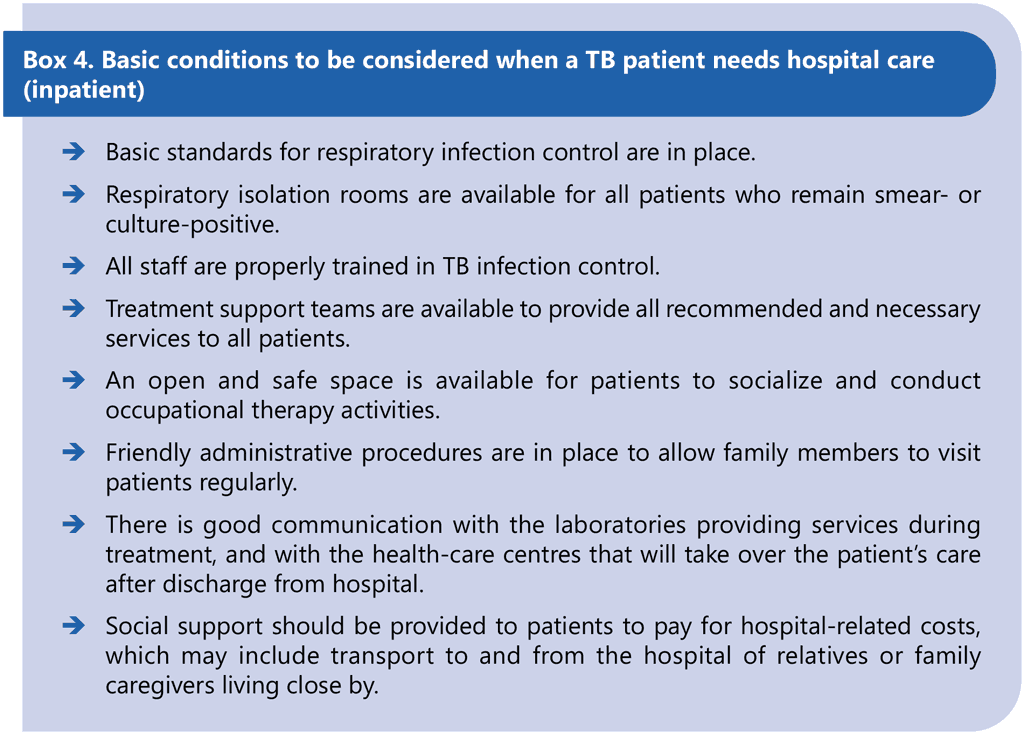Liens transversaux de livre pour 5.1.2 Inpatient model of TB treatment and care
Some patients may need to stay in hospital to receive treatment for TB. This is the case, for instance, if a patient has a severe form of DS-TB or DR-TB disease (e.g. meningitis, vertebral bone infection, pericarditis, miliary TB or severe TB lung disease with signs of respiratory distress/failure or sepsis), has serious comorbidities (e.g. severe malnutrition, untreated HIV, uncontrolled diabetes mellitus), is either very young or quite old, or has serious adverse reactions to medication (66). In these cases, the patients may need to be hospitalized until these conditions stabilize. In the past, patients with DR-TB, were routinely kept in hospital until the end of the intensive phase of treatment or until conversion to smear/culture-negative status. Long hospitalization should not be routinely required for patients on DR-TB treatment unless it is absolutely medically necessary. The treatment regimen should rarely require a patient with DR-TB to be hospitalized because every attempt should be made to put the patient on an all-oral regimen that they can receive as an outpatient. Additionally, a patient should be kept in isolation while hospitalized only when no other options remain.
Box 4 lists things to consider when a patient must be hospitalized. Hospitalized patients should have access to all the social support services they need (see section 3.1). Patients should be hospitalized for the shortest amount of time that is medically safe, and this duration of time should regularly be reassessed by the health-care providers. Every effort should be made to transfer the patient’s care to outpatient clinics as soon as it possible.
Good communication and coordination need to be in place between the hospital(s) and outpatient care providers. This should include: 1) notification to appropriate outpatient teams several days ahead of the planned discharge of the patient from the hospital; and 2) supplying all clinical information about the patient, including all prescribed drugs needed for the first 2–4 weeks of treatment as an outpatient.
An assessment of the risks for a patient who is not able to take his/her medicines and a plan to reduce the risks with social support should be discussed with patient and the outpatient care providers well ahead of the patient’s discharge from hospital.

 Retour
Retour